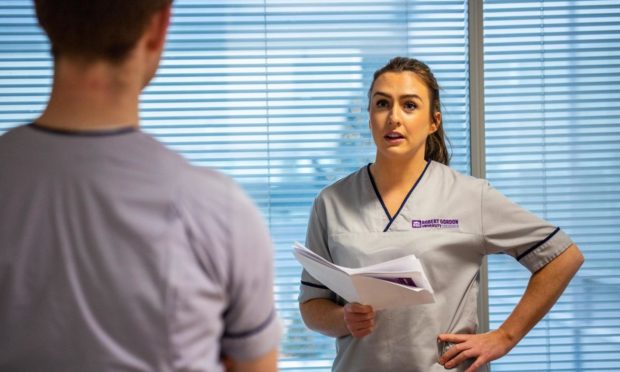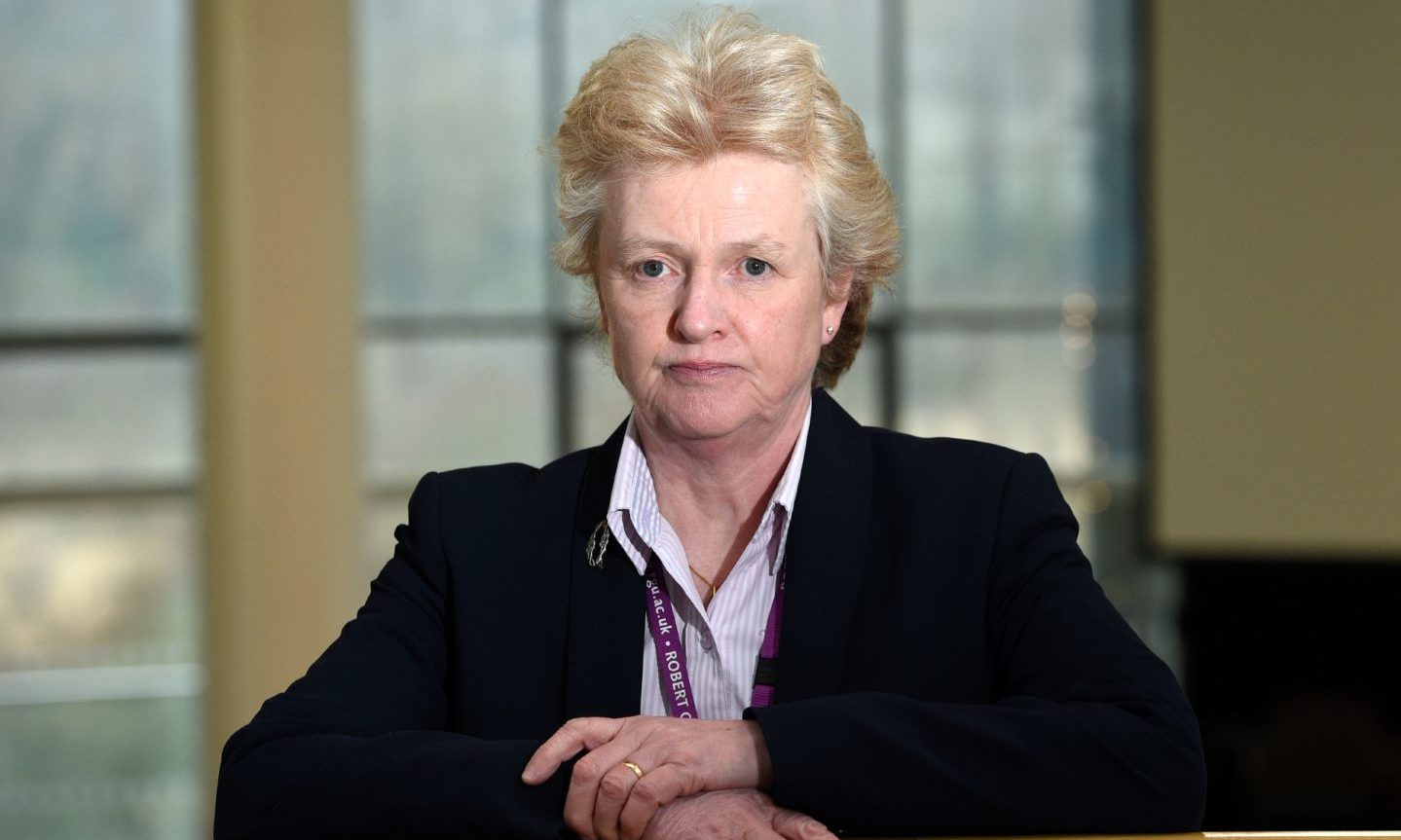University bosses are hoping to spark a change in attitudes towards breastfeeding across the north-east after becoming the first in Scotland to meet an international gold standard.
Robert Gordon University (RGU) in Aberdeen has been awarded Unicef’s baby friendly accreditation, which acts as a “mark of quality” for its training.
It means its courses are going above and beyond the standards typically expected of them, in order to give newborns the best start in life.
RGU has become the first university in Scotland to be given the award, and fourth in the UK, after appointing two “baby friendly guardians” and having senior leadership undertake additional training.
By teaching to these enhanced standards, it is hoped the university can influence new graduates and the existing workforce to implement a “new normal” of higher quality care for new mums.
What does the accreditation mean?
The accreditation, developed by Unicef and the World Health Organisation (WHO), has been designed to “transform” healthcare for babies, their mothers and families.
It includes a range of new standards covering how pregnant women are cared for, through to help with feeding and developing close and loving relationships.
The scheme was founded off the back of Unicef research showing the health benefits of breastfeeding, which also found many mothers stop before they want to amid “fraught” conversations with health professionals.
Professor Susan Dawkes, the head of RGU’s School Of Nursing And Midwifery, said: “The rates of breastfeeding in the country are pretty low in comparison to some of our European counterparts, if not the world over.
“We have many, many new mothers who say they’re not breastfeeding because they feel they’re a lack of support, so they stop before they want to.
“The baby friendly initiative is to make sure families are supported and encouraged to breastfeed their newborn, and develop a close and loving relationship.
“There are health benefits that come much later in life from being breastfed as a child, so this is about how we as healthcare professionals can promote best practice.”
She added: “The whole purpose is to make sure we’ve got that educated workforce going forward.
“Our students are advocates for this and, from the get-go, they feel empowered to support infant feeding and building the bonds between mother and infant.
“It’s not something that, by the time they graduate after three years, it’s only vaguely there – it’s embedded from the very start.
“They’ll not only have the skills and knowledge but also the ability to really drive forward change to make this a cultural norm instead of something that’s still, in some cases, frowned upon.”
‘This is not abnormal’
As part of the process towards accreditation, the school appointed two “baby friendly champions” to encourage change throughout the university.
Members of its senior leadership team also enrolled on an intensive training programme to better understand the scheme, which also prompted them to look inwards.
Prof Dawkes said: “We had a whole day going through what it meant to be a baby friendly institution and what that meant for the school.
“And that came down to the very basics of what does it mean for an individual student, and how can they take these standards and use them to make sure newly-qualified midwives, nurses and health visitors have that really strong foundation of knowledge to support families.
“And, as a university, we looked at how we can encourage our own students and staff to breastfeed their own children.
“Where are the spaces on campus to do that or, if you need to express milk, the really basic stuff of where you’re going to keep it.
“We’re trying to develop a culture that this is actually the norm – it is not something abnormal.”
Baby Friendly accreditation can have wider impact
She added: “This allows us to demonstrate we provide high-quality education that’s underpinned by these standards.
“We’re providing good quality training and we can then help to influence policy going forward by enhancing the skills of the future workforce.
“And also, the registered midwives and health visitors out there already are supporting these students, so you’re also developing the current workforce.”
Professor Elizabeth Hancock, who is the university’s deputy principal and one of its vice-principals, also took part in the training session.
She said: “As one of the leading provider of health professionals to the NHS, we are proud to receive this award from Unicef, which is a testament to the high quality education provided by RGU.
“We are committed to supporting the NHS and Unicef’s UK Baby Friendly Initiative in providing training, developing better policies, and enhancing skills across all practitioners.
“The initiative helps to support parents with feeding and developing close, loving parent-infant relationships, ensuring that all babies get the best possible start.
“This accreditation would not have been possible without the hard work and commitment from our staff and students, and I am incredibly proud of their efforts.”
Janet Dalzell, Unicef professional lead for Scotland, said: “RGU has an outstanding approach towards implementing the Baby Friendly Initiative and I highly commend the enthusiasm and commitment towards this programme of work.
“In particular, the students interviewed demonstrated a compassionate communication style and rigorous understanding of supporting pregnant women and new mothers with breastfeeding and safe and responsive formula feeding fostering close and loving relationships.”


